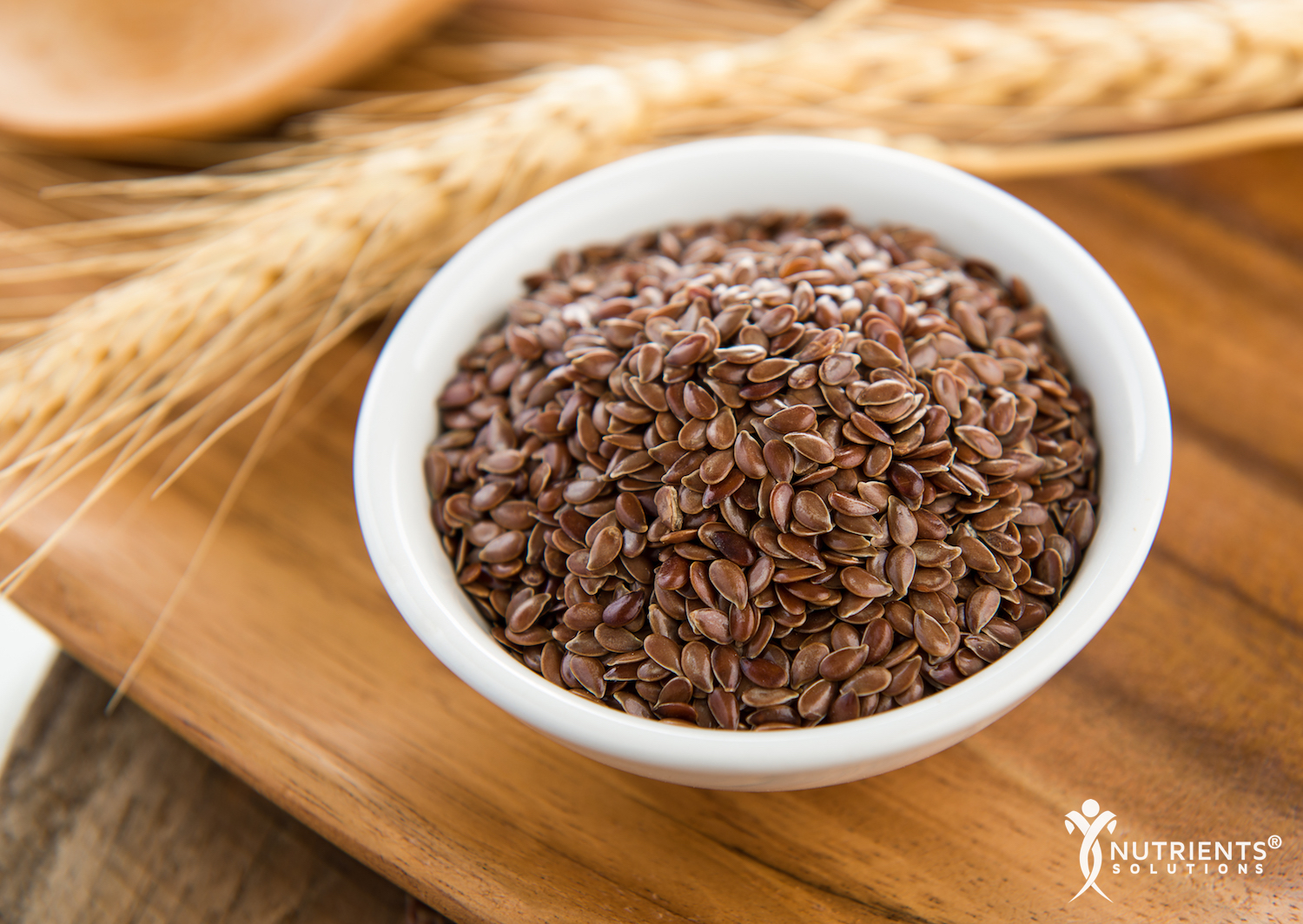Wellness Demystified: We Can Help You Discover Optimum Health
Flaxseed – A Benefit To Human Health From Earliest Times

Flax is a crop plant that can be used for fiber, for livestock feed, and for food. Research finds that it has many benefits to health. Studies indicate daily consumption of flaxseeds can help reduce the risk of heart disease, high blood pressure, and diabetes. With evidence-backed benefits, flaxseeds offer an easy and hearty way to improve health.
Flax, from the Linum usitatissimum plant, has been used since the dawn of humanity. It can be made into fiber, food, and oil. The seed from the flax plant has enjoyed increasing interest from the scientific community because of the nutritional components that can have been found to improve health on many essential levels. However, flax and flaxseeds have long been a part of human history, both for its practical uses and its health properties. If you are interested in promoting good health with natural substances, flaxseed should be among the plant products you employ for beneficial chemical components.
The History of Flaxseed
Flax is considered one of the oldest crops used by humans. It is native to the Mediterranean area and Eurasia and was the first plant used for its fiber. The plant thrives in temperate, dry climates with moderate fertility. Flax was soon used to create sails for boats and became an important trade item. The oil pressed from flaxseed could be used in paints and varnishes. As with all oil sources, flaxseed oil was highly valued for its many uses. The flaxseed oil meal became an important feed crop for livestock, containing 35 percent protein, and is still used for this purpose today [1].
How Flaxseed Is Used
Flaxseed contains many nutritional components, including proteins, lignans, fiber, fats, linolenic acid, pantothenic acid, folic acid, B vitamins, and vitamin C. These nutrients break down into mucilages, omega-3 fatty acids associated with blood sugar control, cinnamic acid, phytoestrogen, and phenolic compounds. It also has a high content of potassium, which is related to vascular function. Glucoside components are associated with anti-inflammatory action [2]. Flaxseed has long been used in making bread, but the seed is also pressed for oil. Both forms appear to provide health benefits in terms of chemical composition. More recently, nutritional experts became interested in seed crops for health, and studies on flaxseed yielded significant evidence of their many benefits.
Helps Lower Cholesterol
For many years, flaxseed was considered to have health benefits, but formal research showed increased for its use as a health food. A study from Oklahoma State University Department of Nutritional Sciences found that consumption of flaxseed was able to lower cholesterol levels in a specific population group [3]. The results indicate that it can be used as a food-based method for controlling LDL levels in the body. Individuals who choose not to take standard pharmaceuticals or those that experience troublesome side effects can benefit from flaxseed’s effects on lowering the damaging type of cholesterol.
Helps Lower Blood Pressure
High blood pressure is a common problem around the world, and the search for dietary solutions for lowering blood pressure has been given more scientific attention. A study from the University of Manitoba, Canada published in the journal Hypertension found that daily consumption of flaxseed produced significantly lowered blood pressure in test subjects [4]. The change was credited to flaxseed’s ability to help lower oxylipins in the blood, which produced a beneficial effect on blood pressure.
Helps Fight Diabetes
The rise of the number of people being diagnosed with type-2 diabetes, worldwide, has sparked a considerable amount of research on a diet to lower blood sugar levels. A study at the Shahid Sadoughi University in Iran found that 12-week supplementation of flaxseed aided in the control of blood sugar levels in test subjects. Although the supplement did not lower blood sugar levels in subjects that already had diabetes, the results did support that supplementation with flaxseed could help in preventing the onset of diabetes in pre-diabetic individuals [5].
Anti-Inflammatory Properties
Flaxseed has also been found to have significant anti-inflammatory properties that can be helpful in treating many health problems. It’s believed the omega-3 fatty acids in flaxseed, as well as the lignans and flavonoids, help to reduce inflammation in tissues.
The Arthritis Foundation notes that flaxseed has been associated with reduced symptoms of rheumatoid arthritis, Raynaud’s phenomenon and Lupus [6].
Intestinal Problems
Fiber is a critical dietary element that can help in the prevention and treatment of a variety of health problems. Gastrointestinal health, in particular, benefits from daily consumption of foods with both soluble and insoluble fiber. Increased fiber not only helps to reduce cholesterol levels, but it also helps improve constipation, diarrhea, irritable bowel syndrome and ulcerative colitis. Daily consumption of flaxseed is an easy and healthy way to consume additional daily fiber.
Weight Reduction
One of the most surprising benefits of daily consumption of flaxseed is its ability to aid weight loss. Its success is thought to be because of the amount of fiber contained in the seeds that help to reduce appetite and make individuals feel fuller.
Cardiovascular Health
The ability of flaxseeds to lower cholesterol and blood pressure also help to improve cardiovascular function. High cholesterol levels and high blood pressure are known factors in heart disease. Daily consumption of flaxseeds can help to reduce the risk of cardiovascular events and stroke. Scientists at the St. Boniface Hospital Research Center in Canada found that flaxseed consumption can be useful in preventing atherosclerotic heart disease [7],
Cancer-Protective Properties
The Memorial Sloan Kettering Cancer Center supports the use of flaxseed for its anti-cancer properties. They note that studies show it can have a beneficial effect against breast cancer, prostate cancer and melanoma [8]. Some studies have found that compounds in flaxseed appear to help lower tumor biomarkers in test subjects.
Menopausal Symptoms
Flaxseed contains phytoestrogens, which are analogous to estrogen compounds in the human body. These compounds can be helpful in managing the symptoms of menopause in older women, which frequently causes hot flashes, weight gain mood changes, sleep problems and other troublesome hormonal disturbances.
Flax, with its Latin name of “usitatissimum,” which translates to “most useful,” has been of benefit to humans for a variety of uses since early times. And today, scientists find that the plant’s seed continues to offer significant benefits to human health. Many health experts advise adding flaxseed to the diet for its omega-3 fatty acids, fiber and many vitamins. Those individuals who are interested in using natural, plant-based, components for enhancing health should include flaxseed as part of their daily diet.


© 2019 Nutrients Solutions, LLC. All rights reserved. Disclaimer: The information provided is for educational purposes only and does not constitute medical advice. Always seek the advice of your physician or qualified healthcare provider with any questions or concerns about your health. Check with your doctor before beginning any exercise program. Never disregard or delay seeking medical advice because of something you have heard or read in this article or the internet.












